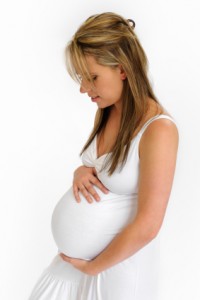Pregnancy Symptoms
Pregnancy is a very special time in a woman’s life. Pregnancy causes dramatic changes to a woman’s physical appearances, emotions and well being. Pregnancy symptoms differ from woman to woman and pregnancy to pregnancy. Some women experience the signs and symptoms within a week of conception whereas in some women, the symptoms develop gradually or may not even present at all.
About 6-10 days after conception, some women experience spotting and cramping, which may be quite subtle. This is cause by the implantation of the embryo into the wall of womb (uterine wall)
Delayed/ Difference in menses
The most common symptom of pregnancy is a delayed or missed period. However, some women can bleed while they are pregnant. However, the bleeding is usually shorter or lighter than a normal period. Therefore, if you find that your period become shorter or lighter than normal, you should test for pregnancy
Swollen & Tender Breasts
Due to the increase in the female hormone (oestrogen) during pregnancy, which causes increase in the size and numbers of milk gland in the breasts, the breasts will increase in size and may be tender to touch, sore or swollen. This may even be apparent as early as 1-2 weeks after conception.
Tiredness or Fatigue
Tiredness or fatigue is a common symptom, particularly in the first trimester and third trimester
Nausea and Vomiting
This is also a common symptom of pregnancy which appears at around 4-6 weeks after conception and gradually subsides around 12-16 weeks. This is usually cause by high levels of pregnancy hormones (oestrogen and beta-HCG). Nausea and vomiting can be relieved by taking small but frequent meals. Taking non-oily food such as plain bread or crackers may help
Heartburns
High levels of progesterone in pregnancy cause relaxation of the sphincter (ring-like muscle) at the upper part of the stomach. This in turn allows the stomach content to flow backward and causes heartburn.
Backache
As the uterus enlarges, the spine curves more to compensate for the changing shape of your body, this may cause backache. Lower backache may occur in early pregnancy and can persist throughout the entire pregnancy.
Headaches
Due to the increase in pregnancy hormones, some women find that they get headache more frequently
Increase/ Frequent urination
Due to the rise in blood volume during pregnancy, the kidneys worked harder and produce more urine. Therefore, you may find yourself making more trips to the bathroom. As the uterus enlarges, it compresses onto the bladder causing it to be smaller in size and hence filled up more quickly. This also contributes to the frequent urination in pregnancy.
Food cravings
Many women have carvings for certain food during pregnancy. This may last throughout your entire pregnancy.









